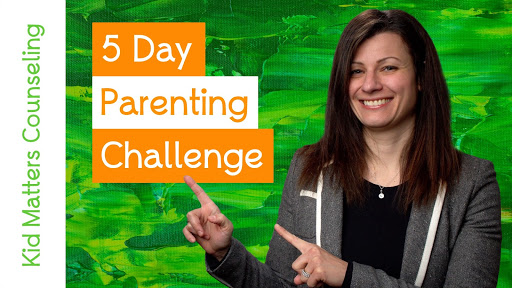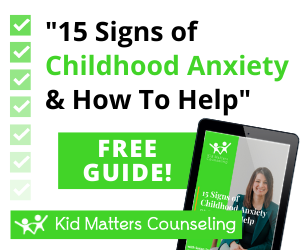An Age Appropriate Guide to Helping Your Child Through Divorce
You have done it. You decided marriage was no longer sustainable and have separated or divorced. Potentially this is the most difficult decision you have ever made, and now you are wondering if your children will manage the blow. How can you help them move forward when it feels like you’ve torn their lives apart?
So within your mind and heart is the fearful whispering of how will splitting up as a family impacts your child.. Will they be okay? Will they be safe?
You are not in an easy place.
Children develop rapidly from birth to 12 years of age. Your parents know this because of the blinking phenomena: one day they are born, you blink your eyes, and they are passing yet another huge life milestone. Because of this, knowing the best way to interact with your child around divorce can be tough to figure out.
Developmental Psychology looks at how a child develops physically and emotionally. It seeks to understand where a child currently physically and emotionally so that the caregivers in their lives can help them develop further.
Below is outlined different stages of development and how you as a parent can help your child in the life transition of divorce.
Birth-18 Months
Developmental Insights
Babies can’t understand reasoning for conflict in home, but understand the feeling of tension picked up from their parents. They do not possess the needed coping skills to deal with the adjustments and rely entirely on caregivers to help soothe.
What To Look For
An increase in clinginess, emotional outbursts, irritability (especially around new people), and signs of backsliding in previously met developmental milestones
Soothing The Transition
- Spend extra time snuggling and holding your baby, particularly when you are at ease yourself. (Note: Your mood and body tension transfer to your baby. Make sure you are resting and taking good care of yourself.)
- Establish routine, familiarity, and consistency. Knowing what to expect is a comfort to growing babies. If possible, work together with other parent to establish regular daily rhythms for eating, sleeping, etc.
- Provide comfort to child through remembering to bring along blanket, favorite toy, or any other security item. If you are transitioning back and forth between homes, make sure to pass off your child’s security item.
18 Months-3 Years
Developmental Insights
Egocentric (self-centered) thinking becomes the main perspective of children this age. When splitting up happens during this age, a child often believes they caused the breakup. Also, toddler’s primary bond is with their parents, making disruptions difficult to comprehend and accept.
What To Look For
Your child may cry, return to thumb sucking, desire more attention than usual, be fearful of abandonment, resist toilet training, and experience difficulty sleeping alone or going to sleep.
Soothing The Transition
Spend quality time together with child, offering extra special attention. Sometimes asking trusted family and friends to do the same helps share the burden.
Continually assure your child that your breakup is not his or her fault. It might surprise you how often you will need to keep communicating this point.
If possible, work together as parents to establish predictable routines, making them as easy to follow as possible for child.
Integrate feelings and emotions into your speech, and help your child recognize the feelings they are having.
3-6 Years
Developmental Insights
No matter how clearly you explain what is happening, your preschooler simply doesn’t understand the concept of divorce. Your home can be the most conflictual and tense place on Earth, but he or she won’t comprehend why that is a reason to separate. This stage is full of your child trying out what they can do and how much they can control as they develop independence. In their quest for control, having what feels like no power over parents behavior can leave them feeling powerless. And yet, like the toddlers mentioned in the previous section they still believe that something they did is responsible for parents’ separation.
What To Look For
Controlling and trapping anger inside
Feeling uncertain about what the future holds
Having and expressing ideas or thoughts that are unpleasant
Nightmares plaguing sleep
Soothing The Transition
- The more open and positive you can be as a parent, the more your child will reflect an open and positive attitude and mood.
- Provide ways for expression of feelings and someone to talk with
- Read age-appropriate books on emotions and divorce
- Set up visitation schedule with noncustodial parent and stick to it as consistently as possible. This makes kids feel safe and secure.
6-12 Years
Developmental Insights
Children in this stage, especially in the younger years, fear abandonment and conceptualize separation as parents divorcing them. Magical thinking and play are present, and children will often fantasize about their parents reuniting. They are even potentially strategizing about how their behavior (good or bad!) will get you back together. Blaming of and expressing anger towards one parent is often typical.
What To Look For
Boys may also lash out against the world (aggression, fighting, etc.) and girls will move towards withdrawing, becoming anxious and depressed.
If your child becomes the most well-behaved or disobedient child, chances are they are attempting to rescue your previous marriage.
Children may start experiencing bodily expressions of anxiety, including headaches, upset stomachs, and/or try to stay home from school by making up symptoms.
You or your ex may become the “bad” parent. Take a deep breath and continue pursuing a meaningful relationship with that child. Eventually, as their development continues, they will come around.
Soothing The Transition
- Peers become important to children at this age. Encourage extracurriculars and peer friendships to ease feelings of extreme loss and build self-esteem. Seek to add enjoyment to your child’s life.
- Quality time is huge! Spend as much of it together as possible and encourage openness about feelings. If their feelings are difficult for you to face, consider talking about your experience separately with safe friends and support network. If your child senses you can’t handle their difficult emotions, they will continue withdrawing them.
- Verbalize that divorce is not the child’s fault. Verbalizing it brings the fact into reality and leave no assumption or questioning on the part of the child.
No matter what age and stage your child is in, their relationship with you is the MOST important thing to each of them. Quality time and a meaningful relationship cannot be emphasized enough. Ability to form attachments begins from birth, and attachments are built through relationship. The amount of time you spend pouring into your child’s attachment impacts their ability to do relationship later on in life. Also, early therapeutic intervention to heal broken attachments, coupled with building your relationship, may be the quickest path to healing. It takes relationships to heal relationships.
You are potentially reading this and recognizing the “What to Look For” in your child. The fearful whisper of “I screwed up my child” is repeating over and over. That fear and guilt is heavy to carry. While it is true that you have impacted the development of your child with divorce, the reality is that development continues. Through the time and effort you invest in the relationship, you are providing safety and security to continue developing them towards an adult who has learned what it is like to be in a meaningful relationship from you.
Kid Matters Counseling has trained therapists ready to help both kids and parents walk through the tough moments in life.
End the frustration & the confusion and let's work together! SCHEDULE APPOINTMENTNew Clients Call: (855) 586-1802
Current Clients: (855) 543-7687
Ask Us Anything!
We help anxious kids and frustrated parents. We serve Hinsdale & the Western Suburbs of Chicago.
Made with ♥︎ in Hinsdale, Illinois for Chicago
Built By Brand Your Practice.
Kid Matters Counseling, P.C. DISCLAIMER: This website and blog are for informational, educational and general discussion purposes only. It is understood that no guarantee or warranty arises from the information provided, discussed or commented upon in this website and blog nor does it constitute legal or other professional advice on any subject matter. Access to this website and blog is voluntary and at the sole risk of the user. If you think that you have a medical emergency (including clinical), call your doctor or 911 immediately. A licensed medical professional should be consulted for diagnosis and treatment of any and all medical conditions. While the information contained within this website and blog is periodically updated, no guarantee is given that the information provided is correct, complete, and/or up-to-date. See our complete Privacy Policy and Terms of Service.



